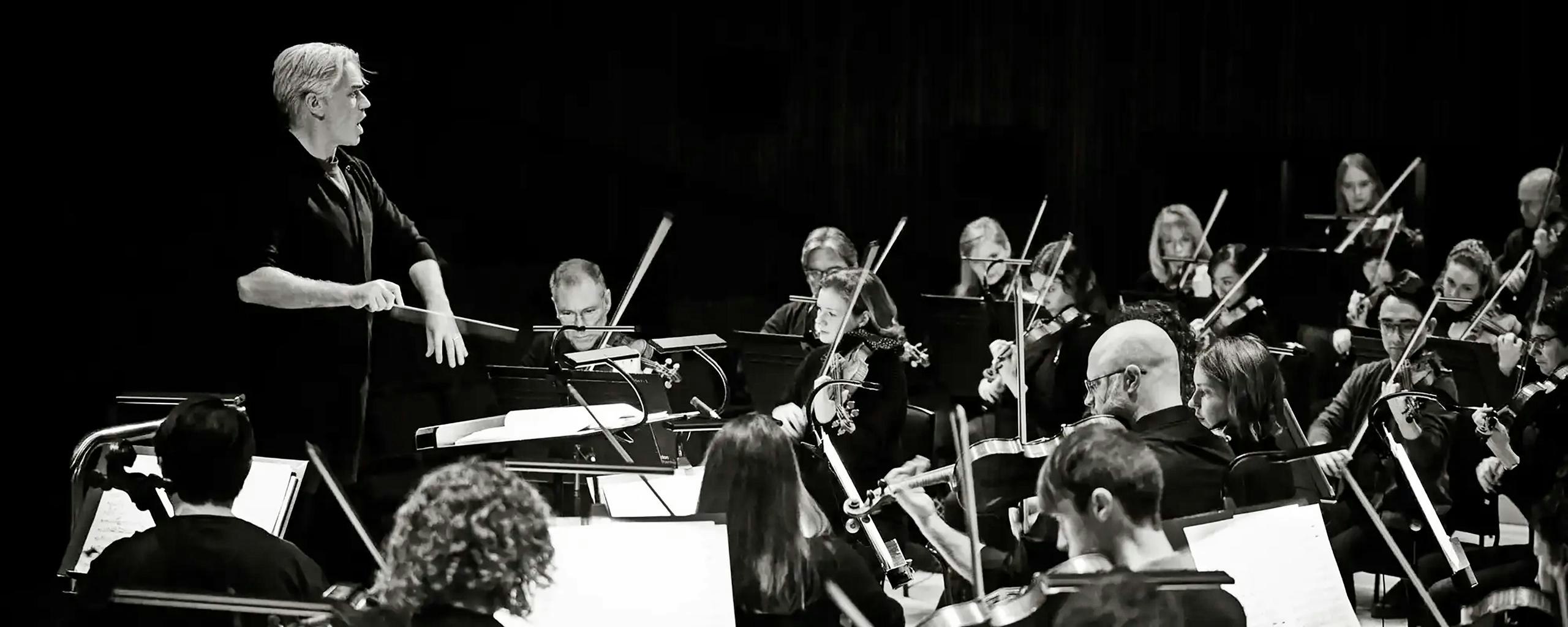This article is taken from the June 2025 issue of The Critic. To get the full magazine why not subscribe? Right now we’re offering five issues for just £25.
A rustling in the record schedules warns me that 2026 will be the Year of Havergal Brian. Never heard of him? Don’t panic. He’s an English composer of 32 symphonies that, some proclaim, will bring audiences storming back into concert halls.
These believers are not isolated. The classical music community is fringed with faith groups who bang the drum for obscure composers. In Britain alone, there are societies promoting Bax, Bantock, Berkeley, Bliss, Boughton and Butterworth and that’s just the ones beginning with “B”.
I was once pinned for two hours to a business-class seat by a man preaching that Georg Philipp Telemann was a great composer, superior to Bach and Handel. Telemann, an 18th-century organist who officiated at five Hamburg churches, is in the Guinness Book of Records as the composer with the highest number of catalogued scores, over 3,000 at the last reckoning.
A Telemann flute concerto floated past me the other day. None of his works feels essential. The idea that this Hanseatic note-spinner might have created an “Erbarme dich” or “Comfort ye” is beyond fanciful. Yet that does not discourage our Telemaniacs, who are planning a global blast for his anniversary year in 2031.
Backers of unjustly neglected composers (UNCs) are not necessarily eccentrics. Several eminent conductors — Welser-Möst, Bychkov and Luisi — have tried to convert me to the symphonies of Franz Schmidt, a wannabe Anton Bruckner.
Schmidt, a cellist in Mahler’s orchestra, makes all the right noises without delivering revelation. Schmidt blamed critics for killing off his works. If only. The Berlin Philharmonic is presently led by a Schmidt apostle, Kirill Petrenko.
It ought to be easy to tell the difference between a great composer and an also-ran. Each of the Nordic countries, for instance, has one giant. Norway has Grieg, Denmark Nielsen and Finland the eternal Sibelius. Sweden is the exception, unless you count Abba. Or Allan Pettersson.
A violist in Stockholm, Pettersson was — according to his Wikipedia entry — “one of the last great symphonists, often compared to Gustav Mahler”. (That’ll teach you to trust Wikipedia.) Sampling Pettersson, you find that he opens a symphony with a cogent idea only to witter off into vague mutterings.
The seventh symphony packs a punch, but he wrote 16 more. It is a symptom of fringe composers that they don’t know when to stop. Leif Segerstam, a Finnish admirer of Pettersson’s music, wrote 371 symphonies before his death last year.

Mahler is often cited by dead composer societies as proof of resurrection, having gone half a century before revival came. The critical difference, however, is that Mahler was an historic figure whose music, much discussed in his lifetime, was choked off by two world wars and Nazism. No dead composer has ever risen overnight from zero to hero. Yet hope springs eternal and the beady-eyed ones will never give up.
Which brings us back to the sticky case of Havergal Brian. A working-class lad from an industrial town, Brian married and had five children, then impregnated a servant girl and had five more. His 1907 English Suite was heard at the Proms but not much else. Brian retired to the seaside in 1940, composing one symphony a year as long as he lasted; he died in 1972, aged 96.
Brian made headlines twice with his first symphony, the Gothic, which requires three orchestras and two choruses and lasts two hours. After an amateur premiere in 1961 and a repeat five years later by Sir Adrian Boult, the BBC was badgered year after year to give it a Prom.
When the BBC gave way in 2010, the Royal Albert Hall was sold out because half the vast space was taken up by the massed ranks of performers. Music critics went away chuntering, “Rubbish”.
The conductor of that Prom, Martyn Brabbins, is president of the Havergal Brian Society. Brabbins has just recorded the sixth and twelfth symphonies in what promises to be a complete cycle on the discriminating Hyperion label. I listened closely and came away unenlightened.
There are passages that would not disgrace the last symphonies of Ralph Vaughan Williams or the first of Malcolm Arnold, and that is no small praise. Brian wrote confidently for woodwind, brass and timpani, less so for strings: a leader’s solo or two would not have gone amiss.
The 18-minute sixth symphony, titled Tragic, is marred by three shortcomings. The first is a lack of contrast, the second bloodless Englishness. The third and most disabling fault is a failure to convey tragedy. My heartstrings went untwanged. Still, I am sure it is already on a longlist for next year’s Proms as the HB Society sets about badgering the BBC again.
No harm in that? What troubles me is how much attention gets wasted on lost causes whilst the major works of Western repertoire are deemed to need gimmicks to get an audience through the door.
We have seen a Mahler symphony decked out in flashing lights at London’s South Bank. In Washington, DC, a Beethoven cycle by the National Symphony Orchestra could only be countenanced when coupled with diversity retrievals by Florence Price and George Walker.
There is a place for marginal composers — it’s on the margins. Let’s not encourage false messiahs. We should celebrate Telemann and Petterson centenaries.There is also room for Frank Martin, Ernest John Moeran, Aarre Merikanto and Nikolai Miaskovsky, each with fan clubs, but let’s not indulge them too far.
The symphony is the summit of Western music. It has a canon that, in an age of confusion, requires focused attention. The rest is life of Brian.












